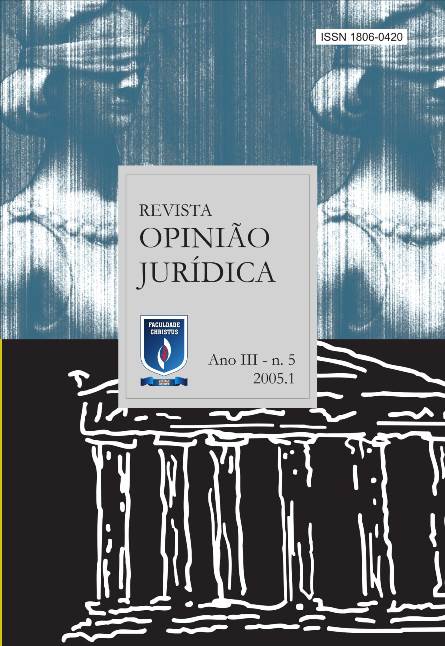MANDADO DE INJUNÇÃO E DISSÍDIO COLETIVO TRABALHISTA: COMPARAÇÕES, DISTINÇÕES E VANTAGENS
DOI:
https://doi.org/10.12662/2447-6641oj.v3i5.p82-96.2005Keywords:
Mandado de injunção, Dissídio coletivo, Sentença normativa, Direito Processual do Trabalho, Ação constitucional, Direitos fundamentaisAbstract
O Mandado de Injunção, como instrumento talhado a tornar possível o exercício de direitos fundamentais prejudicados pela omissão legislativa, sucumbiu perante o Supremo Tribunal Federal. O dissídio coletivo, de seu turno, encontrase dificultado pelos tribunais do trabalho, que se afastaram das discussões econômicas e sociais dos trabalhadores e dos empregadores. De todo modo, o dissídio coletivo, se bem utilizado pelo TST e pelos TRTs, mostra-se mais adequado do que o mandado de injunção para a efetivação de direitos sociais, especialmente dos coletivos, dentro da doutrina da progressão social.
Downloads
Published
How to Cite
Issue
Section
License
CESSION OF COPYRIGHTS
The submission of articles to analysis for publication on Opinião Jurídica implies the author(s) transfers copyrights to Centro Universitário Christus – UNICHRISTUS for reproduction, publicizing, distribution, printing and publication, according to the Publication Norm 414R, Opin. Jur., Fortaleza, year 12, n. 16, p.1-414, Jan./Dec. 2014, costs to be bore by UNICHRISTUS, in whatever format or means that may or shall exist, in accordance to articles 49 and following of Federal Law 9.610/98.
1. In ceding copyrights, the author(s) agrees to do so in exclusivity, free of charge and for the totality of the work.
2. UNICHRISTUS may make the work, in its entirety or in parts, available for scholarly purposes, without altering its contents, except for small corrections that are deemed necessary.
3. The cession of copyrights is valid in all countries and for versions of the material in its original language or translated into a foreign language.
RESPONSIBILITY FOR THE CONTENT
By submitting an article, the author(s) declare to have sole responsibility for the content of the piece and is(are), therefore, responsible for any judicial or extrajudicial measures referring to it.
1. In case of joint authorship, all authors are considered collectively responsible, except when proved otherwise.



















